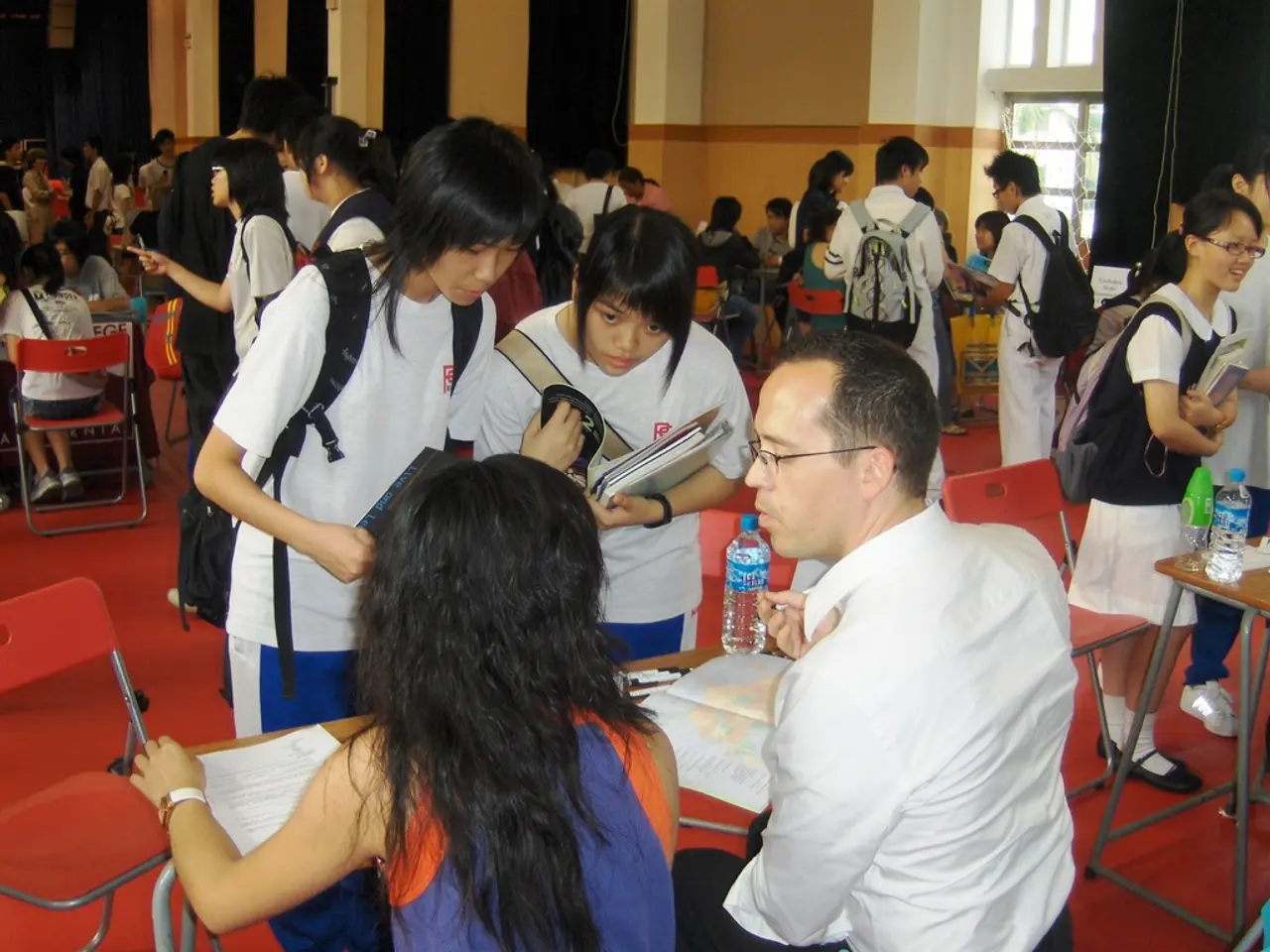Examining the Self-Determination Theory's Role in Educational Settings
Self-Determination Theory (SDT) is a powerful educational approach that offers a comprehensive strategy to address diverse learner needs while maintaining motivational principles. By collaborating with other educational theories such as constructivism and experiential learning, SDT can offer potential synergies in developing strategies that foster autonomy, competence, and relatedness among students.
Fostering Autonomy
Promoting autonomy in education means giving students control and choice over their learning processes. This can be achieved by providing meaningful choices in learning activities and assessments, encouraging student-directed goal setting, and creating structured environments where students understand the purpose and relevance of tasks.
Building Competence
Competence in education is about instilling a belief in students' ability to effectively perform tasks and achieve goals. This can be achieved by offering clear, constructive informational support, scaffolding learning appropriately, and fostering self-efficacy through optimally challenging tasks and timely feedback.
Cultivating Relatedness
Relatedness in education refers to the feeling of connection and belonging that students experience within the educational environment. This can be fostered by facilitating collaborative learning opportunities, creating a supportive classroom climate, and using group work thoughtfully to ensure positive social interactions.
The Impact of Self-Determination Theory on Student Motivation and Academic Achievement
Research has shown that autonomy-supportive teaching practices lead to higher academic performance and well-being. A meta-analysis by Vansteenkiste et al. (2010) indicates a strong correlation between self-determined motivation and positive educational outcomes.
Integrating Self-Determination Theory in Practice
Implementing self-determination theory in education requires ongoing professional development for educators to effectively integrate its principles. This can be achieved through training and workshops that equip teachers with the skills and knowledge to implement strategies that promote autonomy, competence, and relatedness in their classrooms.
Overcoming Challenges
While the benefits of self-determination theory are clear, its implementation can face challenges due to the existing structure of traditional educational systems. Balancing instructional goals with the desire to offer autonomy and choice can be a complex task, leading to inconsistent implementation in large classrooms. However, policy shifts are necessary to prioritize strategies that foster student autonomy, competence, and relatedness, ultimately leading to greater student engagement and motivation.
The Future of Education
Embracing self-determination theory can transform educational practices and foster a culture that prioritizes student motivation, autonomy, and engagement. This shift represents a significant step toward enhancing student motivation and fostering a generation of motivated, self-directed learners.
Incorporating social-emotional learning with self-determination theory can lead to more holistic educational experiences, fostering resilience and self-efficacy among learners. The integration of self-determination theory with other educational theories can create a holistic approach to student motivation, fostering active learning and promoting peer interactions that build relatedness among students.
In summary, educators should create learning environments that provide choice and encourage self-regulation, offer informational and scaffolding support to build competence, and foster authentic social connections to fulfil relatedness needs. Implementing models like the Self-Determined Learning Model of Instruction (SDLMI) and using collaborative tools effectively are practical ways to integrate these principles in classrooms, including online settings.
Read also:
- Experiencing Life's Variety Firsthand: Gaining Insights from Life's Broad Spectrum of Experiences
- Impact of Complex Post-Traumatic Stress Disorder on Romantic Relationships: Symptoms, Causes, and Precautions
- Andrew Stunell joins in celebrating equality with graduates from a pioneering mentorship program.
- Exploring the Truth Behind Gestational Diabetes Causation: Separating Facts from Fiction




